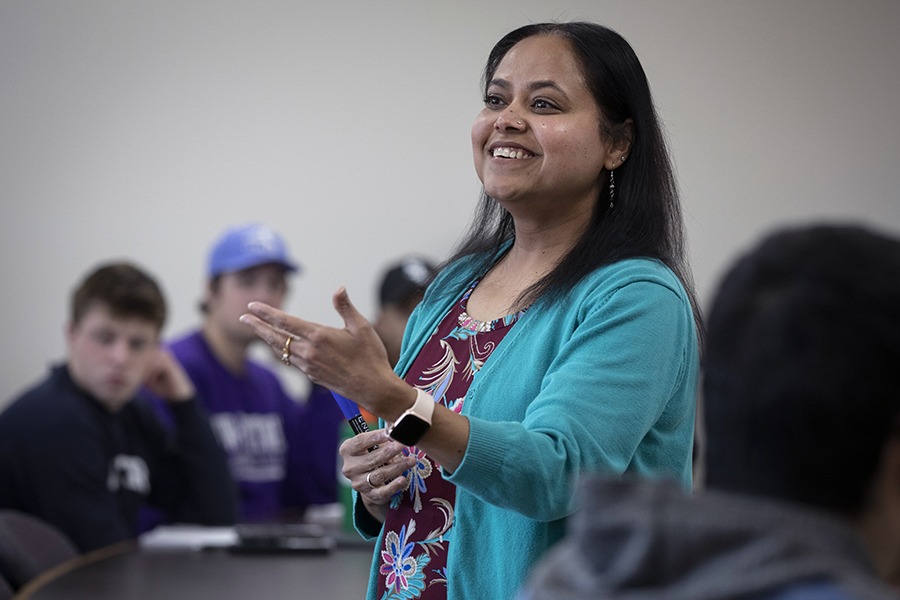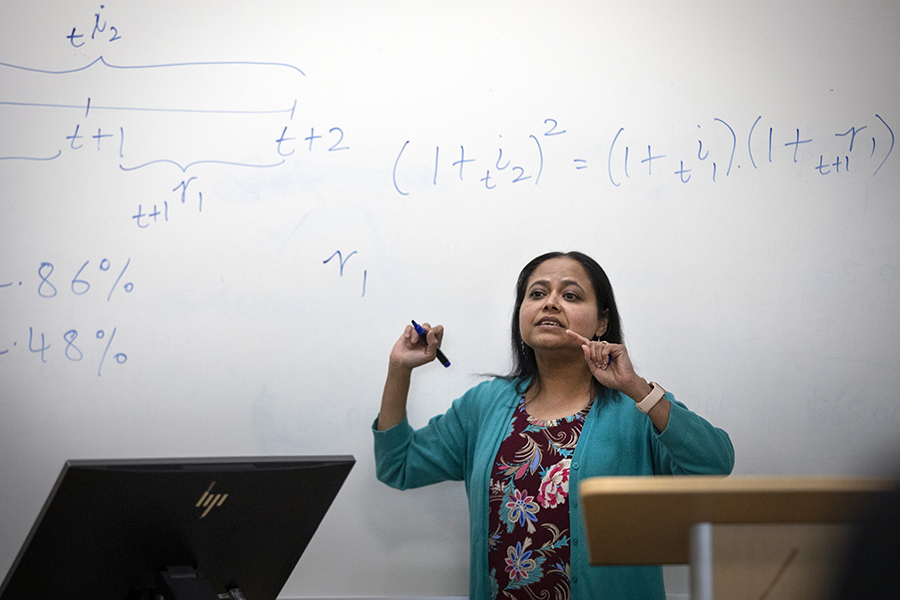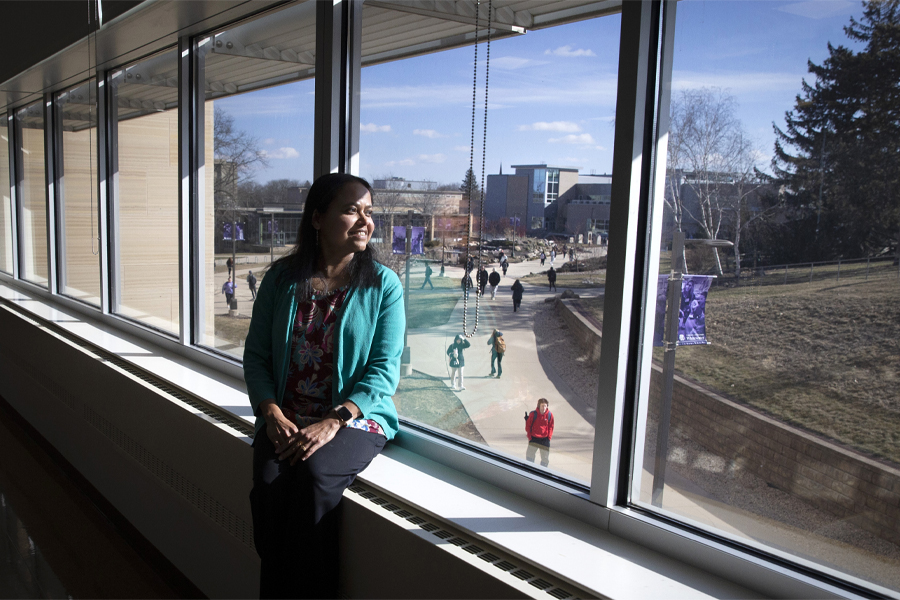Students profit from Rashiqa Kamal’s expertise
February 27, 2024
Written and photos by Craig Schreiner
Rashiqa Kamal, an associate professor of finance and business law at the University of Wisconsin-Whitewater, has a friendly style and probing questions for her students.
She talks about helping her students gain access to the principles that will help them both professionally and personally. As they graduate into finance and business fields, most of her students will work with the concepts she teaches every day of their professional lives.
Kamal grew up in India and came to UW-Whitewater 15 years ago after receiving her Ph.D. at the University of Nebraska. Kamal was drawn to the campus because of its people and the potential she saw at Hyland Hall, home of the College of Business and Economics. Not only is the college the largest business college in Wisconsin, finance is the university’s number-one major.
Kamal teaches undergraduate and graduate-level courses in business finance and financial markets.
“I teach the introductory finance class for all business majors. We learn the most basic concept of finance, that is, the Time Value of Money (TVM). Then we use it to value stocks, bonds, and projects. Using TVM, students can make investing and financing decisions not only as business professionals, but also for personal finances.”

Students in Rashiqa Kamal’s class learn principles of business, investing and finance.
In her class on financial markets, students learn about factors that determine interest rates.
“Interest rates are so important for valuation!” Kamal said. “We also learn about different types of financial markets, mostly debt markets, and characteristics of securities traded in these markets. These securities are very important for different types of financial institutions like banks and credit unions. These institutions issue these securities and also invest in them. So students who end up working at these institutions not only need to have knowledge of these securities but also how their values are affected by changes in interest rates.”
In a graduate level course on financial markets, they go more in-depth into topics of interest rates, financial markets, and institutions.
“A big part of this class is strategies for risk mitigation. In other words, how do financial institutions deal with the risk that comes from changing interest rates, and other factors.”

Short- and long-term investing, financial markets and interest rates are the tools of finance taught by Rashiqa Kamal.
Kamal was recently selected to the 2023–2024 Wisconsin Teaching Fellows and Scholars program. Scholars, who are nominated by their provost, must demonstrate excellent teaching skills and have a curiosity about student learning. The yearlong program culminates with a research presentation at the annual Spring Conference on Teaching and Learning in Madison.
The award is fitting for Kamal, who, in addition to teaching principles, knows she is teaching individuals, too.
“When I was in high school, I started tutoring younger kids, and continued doing that even when I was pursuing my MBA (at the University of Lucknow, India). I used to tutor my classmates in quantitative subjects like finance.”

Rashiqa Kamal looks out onto campus from one of her classrooms in Hyland Hall.
As a professor at UW-Whitewater, she speaks of the reward she feels when an ex-student reaches out to her, out of nowhere, to let her know how her class helped them pass a certification exam, or how that one project helped them in an interview, or how the knowledge that they received in her class helped them to get a job.
“A few years ago, a student emailed me and told me that she was interviewing with the CFO of a company and she mentioned a concept that she had learned to perform in Excel in my class, and the CFO was so impressed. He said that not even a few of his CFA charter holder employees know this. Of course, she ended up getting the job!”
In addition to the common advice college students receive — to persevere, be patient, and to manage their time well — Kamal has this.
“I would say that taking care of yourself and your mental health is the most important thing. If you feel overwhelmed or depressed, the best thing to do is to reach out for help.”
